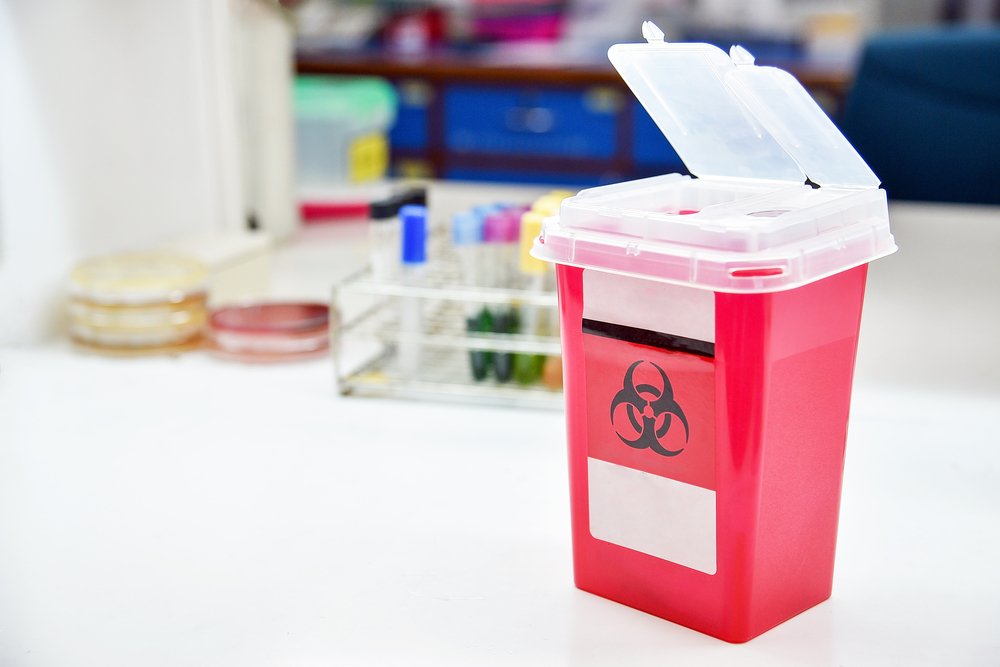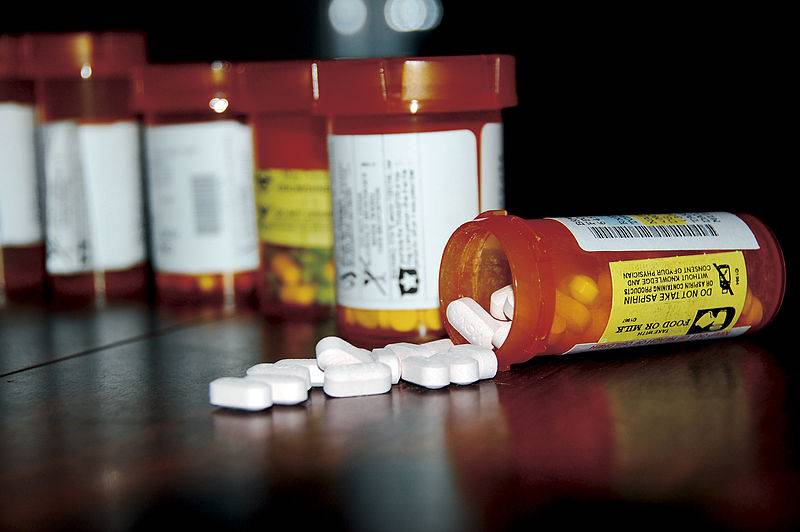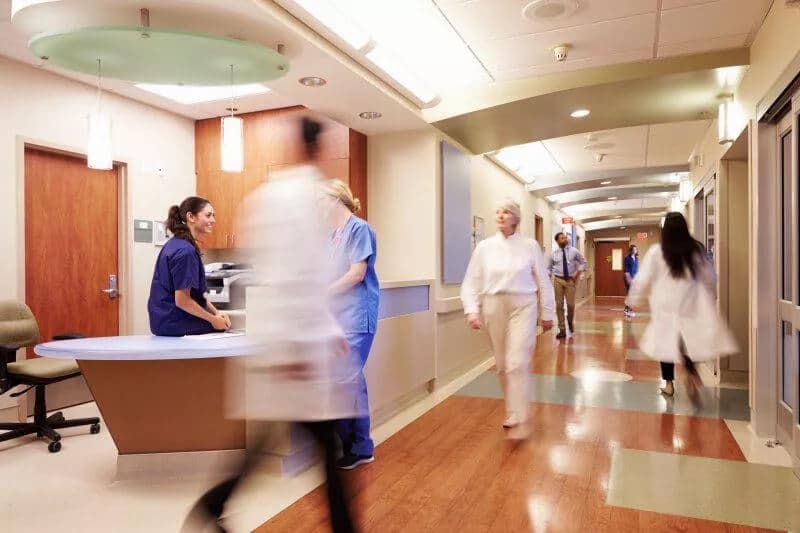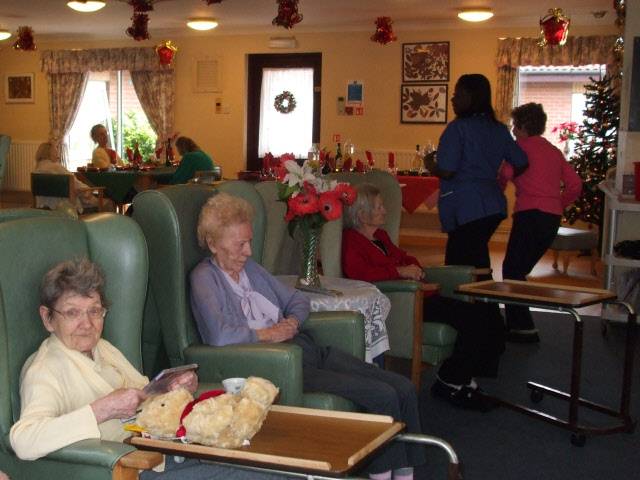Medical Waste Disposal Raleigh, NC
MedPro Disposal helps healthcare providers in Raleigh, NC save an average of 30% on their medical waste disposal.
Raleigh, North Carolina Medical Waste Disposal Services
MedPro Disposal offers medical waste disposal, infectious sharps waste management, OSHA compliance training including bloodborne pathogens training and certification, and HIPAA-compliance document shredding and data destruction services. MedPro Disposal keeps your practice safe and compliant so you can focus on what matters most, your patients.
Industries We Service
Take the MedPro Disposal challenge!
See how much MedPro Disposal can save your practice!
It’s Easy to Get Started With MedPro Disposal

Contact Us
Contact MedPro Disposal for a fast, free medical waste removal quote. We’ll get to know you, discuss your needs, and settle on a number. You may be surprised at how much you can save on medical waste disposal with MedPro Disposal.

Waste Pickup Date
Work with MedPro Disposal to determine your first pickup date. We’ll confirm your office hours and provide convenient options for medical waste and sharps pickup.

Compliance Survey
Complete a compliance survey. After we get to know your requirements, we’ll send you a survey to identify any areas that need to be brought up to OSHA standards.
All three steps occur at no additional cost to your practice. You’re on your way to safe, affordable, compliant medical waste removal!
Contact MedPro Disposal Today for a Fast, Free Quote!
Raleigh, NC
Raleigh is the capital of the state of North Carolina as well as the seat of Wake County. Raleigh is known as the “City of Oaks” for its many oak trees, which line the streets in the heart of the city. According to the U.S. Census Bureau, the city’s 2012 estimated population was 423,179, over an area of 142.8 square miles, making Raleigh currently the 42nd most populous city in the United States. It is also one of the fastest-growing cities in the country. The city of Raleigh is named after Sir Walter Raleigh, who established the lost Roanoke Colony on Roanoke Island in present-day Dare County, North Carolina.
| Practice Type | Zip Code | Projected Annual Savings |
|---|---|---|
| Plastic Surgery | 27162 | $3,812 |
| Urology | 27607 | $540 |
| Chiropractic | 27607 | $7,672 |
Find Out How Much You Can Save Instantly
Try our on-line savings calculator.
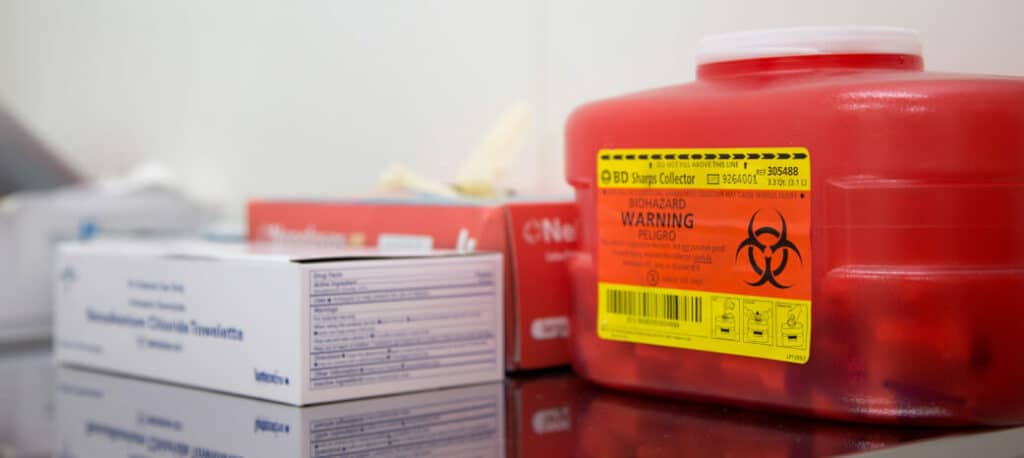
Medical Waste Disposal Raleigh, NC
Located in the celebrated high tech cluster known as the Research Triangle, Raleigh is an innovative and inspiring city that appears frequently at the top of national and international rankings. The city regularly outranks its peers in terms of livability, economic growth, health, and education with its strong economy, attractive neighborhoods, excellent healthcare system, and rich educational opportunities.
Known as the City of Oaks, Raleigh is the capital city of North Carolina and the county seat of Wake County. The city is home to a diverse population of more than 450,000 residents and over 40,000 businesses based largely in technology, education, and healthcare. The city’s thriving and progressive economy is driven by a skilled and educated workforce comprised of more than 70% of the adult population, of which nearly 50% hold a Bachelor’s Degree or higher. Recent positive job growth and low unemployment, together with affordable housing, excellent schools, and low commute times continue to draw new residents and businesses to the city each year.
Raleigh, North Carolina Economy and Entertainment
When it comes to cities, Raleigh is better, if not bigger. Among the city’s most recent accolades, Raleigh ranks first on CNN Money’s “Top Ten Best Cities for Jobs” for 2015 and second among the “Best Cities for Business and Careers” by Forbes. The city is part of the immense 68,000-acre Research Triangle, one of the nation’s largest and most successful research parks and a major center for high-tech and biotech research. No slouch when it comes to academics, Raleigh consistently ranks among the best-educated cities in the nation. The city is home to North Carolina State University and within 45 minutes of the University of North Carolina at Chapel Hill and Duke University at Durham.
Raleigh’s unique lifestyle and innovative cultural and economic amenities attract families and singles from all walks of life. The city is home to some of the brightest and most creative minds in the country who set the pace with a thriving cultural arts scene, vibrant nightlife, and fabulous entertainment venues that attract more than 14 million visitors each year.
Downtown Raleigh is home to a diverse network of neighborhoods and entertainment districts that each provide their own personal contribution to the city. The Capital District is the center of government for the state. Home to the State Capital and Governor’s Mansion, the district features some of the city’s most notable attractions, including the North Carolina Museum of Natural Sciences, one of the top ten science museums in the nation that is the state’s number one most visited attraction. The Capital District is bordered to the east and north respectively by the Oakwood and Mordecai historic districts. Two of the city’s oldest neighborhoods, the districts feature numerous homes and buildings listed on the National Register of Historic Places, including Mordecai House, a circa-1785 Greek Revival style dwelling that is the oldest house in Raleigh still occupying its original location.
For shopping, dining, and nighttime entertainment, check out the sights and sounds of Glenwood South, the city’s hippest entertainment district that features more than 40 retail shops, fashion boutiques, nightclubs, bars, and restaurants packed into an eight square block area between Hillsborough and Peace streets.
Moore Square is Raleigh’s robust central arts district. Occupying a three-mile radius of downtown surrounding the city’s Historic Market, Moore Square features an eclectic collection of galleries, museums, retail shops, bars, and restaurants situated along the district’s charming cobblestone streets. The Moore Street District is home to the Long View Center, Marbles Kids Museum, and IMAX Theater, as well as several popular annual festivals that include the Raleigh Arts Festival and Raleigh Street Painting Festival, held each May and September, respectively.
Raleigh is known for its state-of-the-art healthcare and biotech industry. The city is home to Duke Raleigh Hospital, a general medical and surgical hospital that is a member of the renowned Duke University Health System in Durham. Raleigh is also home to WakeMed, an 870-bed healthcare system that specializes in heart and vascular medicine, women and children, orthopedics, rehabilitation, surgery, and emergency treatment, and to UNC Rex Hospital, the city’s oldest hospital that has been recognized as one of the top 50 hospitals in the nation.
With the high concentration of healthcare and biotech facilities located within the Raleigh community, medical and biohazardous waste disposal is an important issue that cannot be overlooked. Proper handling, collection, transportation, and disposal of medical and biohazardous waste is vitally important to the success of any healthcare-related facility and should be handled by a licensed medical waste disposal company with extensive experience in pickup, transportation, and disposal of medical and biohazardous waste.
Raleigh Medical Waste Rules and Regulations
Raleigh’s medical waste industry is regulated by the North Carolina Department of Environmental Quality (NCDEQ). The NCDEQ is responsible for licensing, permitting, and compliance of all entities involved in the handling, removal, transportation, and disposal of medical and biohazardous waste.
The Environmental Protection Agency (EPA) defines medical waste as any waste that contains, or has been exposed to, diseased tissues or infectious microorganisms, including contaminated animal waste, pathological waste, human blood and blood products, discarded sharps, and solid waste such as used surgical gloves and soiled bedding, bandages, and swabs that have been exposed to infectious sources.
Improper management of medical and biohazardous waste can pose a substantial risk to healthcare professionals, patients, and the public at large. According to the World Health Organization, hundreds of thousands of needle sticks and sharps injuries occur each year, resulting in potential exposure to a variety of infections that include hepatitis, meningitis, anthrax, respiratory infections, gastrointestinal infections, and septicemia (blood poisoning). These types of incidents can result in direct and indirect costs to the healthcare industry that include loss of employee time, cost of treatment and laboratory testing of infected staff, and administrative costs related to the investigation of incidents.
The risks associated with these types of incidents are why it is so vitally important to have your medical and/or biohazardous waste collected and transported by a licensed and experienced medical waste disposal company.
MedPro is a medical waste disposal company that provides pick-up, transportation, treatment, and disposal services for regulated medical waste, biohazard waste, sharps, and pharmaceuticals. MedPro Disposal’s medical and biohazard waste disposal professionals provide you with a low cost service and industry compliance that you can depend on. Your dedicated support representative will provide you with a comprehensive quote, alleviating pricing surprises often experienced through our competitors. As a MedPro customer, you can expect to receive prompt, courteous, professional service at a price you can afford.
Whether you are new to the industry or just looking to make a change, consider MedPro Disposal for your medical and biohazard waste disposal needs!
Raleigh, NC Local Resources
Chamber of Commerce
Chamber of Commerce

800 S. Salisbury St. Raleigh, NC 27601

(919) 664-7000
Health Department
Health Department

10 Sunnybrook Road Raleigh, NC 24620-4049

919-250-4516
Wake County Waste and Recycling
Wake County Waste and Recycling

Wake County Office Building PO Box 550 Raleigh, NC 27602

919-856-7400
Supply and Other Resources for Raleigh
Public Works
Public Works

Raleigh Municipal Building, 222 W. Hargett St. Raleigh, NC 27601

919-996-3030
Sola Coffee Cafe
Sola Coffee Cafe

7705 Lead Mine Road Raleigh, NC 27615

(919) 803-8983
City Of Raleigh
City Of Raleigh

222 W. Hargett St Raleigh, NC 27601

919-996-3000
Raleigh Little-Known Facts
In December 1770, Joel Lane successfully petitioned the North Carolina General Assembly to create a new county. On January 5, 1771, the bill creating Wake County was passed in the General Assembly. The county was formed from portions of Cumberland, Orange, and Johnston counties. The county gets its name from Margaret Wake Tryon, the wife of Governor William Tryon. The first county seat was Bloomsbury.
Why Choose MedPro Disposal for Medical Waste & Sharps Container Disposal?
Methods of Raleigh Medical Waste Disposal
On-site Medical Waste Collection
Package medical waste on-site, then leave it for collection by a medical waste disposal company.
Mailback Waste Disposal
Properly package and label the sharps, then send the biohazardous waste safely through the mail for disposal.
